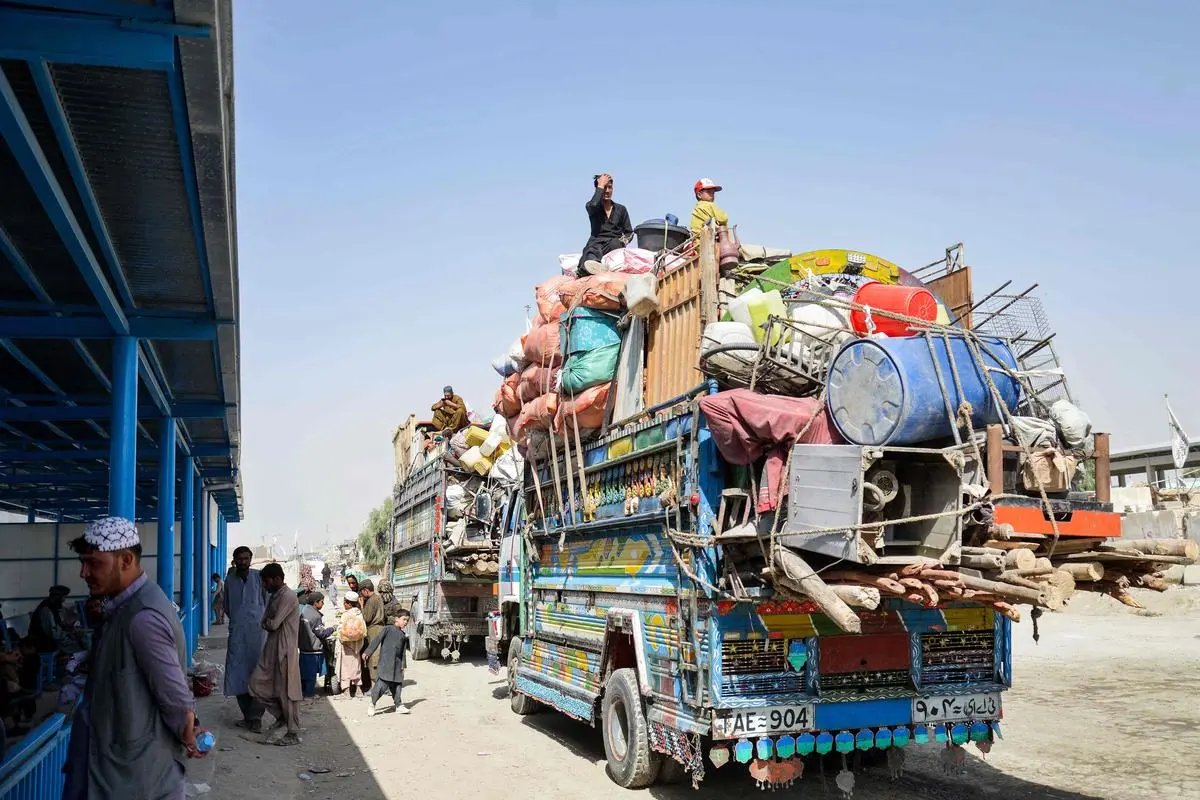For four-and-a-half days in Istanbul, starting on October 25, 2025, Pakistani and Afghan officials faced each other across a long oval table inside a secure Turkish intelligence compound. Turkish and Qatari mediators moved between rooms, cooling tempers and trying to soften language as the two delegations argued over what “sovereignty” should entail.
According to officials present at the talks, who were not authorised to speak to the media, both sides wanted written guarantees from each other and neither was prepared to give them.
Afghanistan pressed for an end to drone strikes and airspace violations it attributes to Pakistan. Pakistan demanded credible, verifiable action against the Tehreek-e-Taliban Pakistan (TTP) and against networks blamed for violence in Balochistan and Khyber Pakhtunkhwa. By Islamabad’s count, roughly 1,600 to 1,800 Pakistani personnel have been killed in militant attacks since August 2021, with about 460 deaths already in 2025.
Also Read | Courting Kabul, carefully
In the early hours of October 29, Pakistan’s Federal Minister for Information and Broadcasting Attaullah Tarar said on X that the Istanbul talks “failed to bring about any workable solution”. Pakistan would continue to take all possible measures to protect its citizens from terrorism, he added.
Tarar said Pakistan had repeatedly engaged with the Afghan Taliban regarding “persistent cross-border terrorism”. He said Islamabad had provided “sufficient and irrefutable evidence” that was acknowledged by the Afghan side and the hosts but Kabul gave no assurances and repeatedly deviated from the core issue.
Yet, even as the dialogue room emptied in Istanbul, a last-ditch effort was being made in parallel. Mediators and the Turkish host, National Intelligence Organization (MİT) chief İbrahim Kalın, remain convinced the process can be salvaged. “No one wants the ceasefire to unravel,” a person involved in the facilitation said, noting that Türkiye and Qatar believe both delegations can still retrieve the process if they accept a staged, written roadmap. Behind the scenes, they are exploring a short, quiet reconvening to close gaps on verification language.
These were technical-level talks, not a political summit. Intelligence and security officials led the discussion from both sides, with the mandate to draft mechanisms that could be carried up to political leaders for approval. It was a deliberate contrast to the Doha talks on October 18-19, where ministers were present to stamp a ceasefire after days of intense border clashes. Istanbul was supposed to be the engineering workshop: build a monitoring mechanism, stress-test it, and then send it to capitals for a political seal.
Who sat at the table?
The Afghan delegation was led by Deputy Interior Minister Mawlawi Rahmatullah Najeeb (also spelled Rahmatullah Najib). He was joined by senior leaders Anas Haqqani, Suhail Shaheen, Deputy Defence Minister for Operations Noorur Rahman Nusrat, Director-General for Political Affairs Noor Ahmad Noor, and Foreign Ministry spokesperson Abdul Qahar Balkhi. The team spoke with the authority of Afghanistan’s security wing but consulted the leadership in Kabul and Kandahar as the text evolved, according to people familiar with the exchanges.
Pakistan’s team was headed by Lt. Gen. Shahab Aslam of the Inter-Services Intelligence’s (ISI) special operations arm, backed by an ISI brigadier, an officer from Military Operations, and two aides. The civilian foreign office was not front and centre in this round. It was a security table for a security problem.
Trucks stalled on the Pakistan-Afghanistan border, closed following clashes between the two countries, near the border town of Torkham on the Pakistani side, on October 19.
| Photo Credit:
AFP
While Türkiye’s MIT under İbrahim Kalın was the host, Qatar acted as guarantor of the Doha truce and co-mediator in Istanbul. Both played timekeeper and translator of intent, trying to keep the parties anchored to a narrow agenda: border stability, counter-terrorism cooperation, and a verification ladder that both could live with.
Progress and whiplash
Day one opened with Pakistan’s “wish list”, as one participant put it: shut down TTP sanctuaries, commit to extraditions or detentions where possible, and sign up to a verifiable mechanism that measures actions, not promises. The session ran for nine hours. The Afghan reply landed at 2 am. The Pakistani counter-reply went in at 6 am.
By day three, the meeting stretched to 18 hours. “We had encouraging movement,” a Pakistani source told media outlets. “Then their [Taliban] position shifted after instructions from Kabul.” Pakistani delegates said the Afghan team repeatedly checked back with Kabul and Kandahar and then stepped away from the language they had tentatively accepted.
Pakistan’s Defence Minister Khawaja Asif told Geo News that Afghan negotiators back-pedalled on a deal “four or five times” after receiving instructions from Kabul. “Whenever we got close to an agreement—either in the last four days or last week [October 18-19, in Doha]—when negotiators reported to Kabul, there was intervention and the agreement was withdrawn,” Asif said, adding that he believed the negotiations had been sabotaged. He also claimed there were elements in Kabul that were “controlled by Delhi” and warned that any attack on Islamabad would be met with a “befitting response, a response 50 times stronger”.
Also Read | The Taliban gamble
Afghan delegates complained that Pakistan introduced new demands late and that members of the Pakistani team strayed off and used language that the mediators found abrasive. “Most points were done. New items appeared late that were not acceptable,” a person familiar with the Afghan side said. Both accounts agree on the turning point. When the text moved from general principles to enforceable verification, trust ran out.
The sharpest exchange came over drones and airspace. Afghan negotiators asked for reciprocal guarantees that would ensure that Pakistan would prevent airspace violations and stop drones, including US ones said to operate from Pakistani territory, from entering Afghanistan.
Afghan sources said the Pakistani delegation complained about drones flying in from the US base in Qatar. Qatar’s recently appointed Ambassador Extraordinary and Plenipotentiary to Afghanistan, Mirdif Ali Al Qashoti, responded that his country had an agreement with the US. The Pakistanis asked how they could be expected to block US drones to stop violating Afghanistan’s airspace.
“They lost composure,” one person said. Turkish and Qatari facilitators, while careful in public, privately urged both sides to reset the tone and return to small, bankable steps.
“Summon your rebels”
Another stumbling block was a Pakistani demand that Kabul “summon and control” groups attacking inside Pakistan. The Afghan side said these fighters were Pakistani nationals. “We cannot call your citizens into Afghanistan to control them,” one Afghan participant argued. Mediators, according to two people briefed on the exchange, pressed both sides to return to achievable, reciprocal steps: stopovers, safe-passage protocols, intelligence hotlines, and a pilot verification cycle tied to a single border sector.
Pakistan also rejected a Taliban offer to facilitate direct talks with the TTP. “We will not negotiate with terrorists,” a Pakistani official said. “It is Kabul’s responsibility to deny them sanctuary.”
Also Read | Can India and Türkiye revisit their shared past to build a pragmatic future?
Beneath the drafting fights was a philosophical split. Islamabad insists sovereignty should entail a duty to prevent one’s territory from being used to attack a neighbour. Kabul sees it as a right to prevent foreign strikes, manned or unmanned, across its border. Each side insists the other must move first. As one official put it: “Sovereignty versus sovereignty. The same word, two mirrors.”

Afghan refugees deported from Pakistan wait inside a registration centre upon their arrival at the zero-point border crossing between Afghanistan and Pakistan in the Spin Boldak district of Kandahar province on October 19, 2025.
| Photo Credit:
AFP
The Doha ceasefire holds on paper. But the costs of drift are visible. Border crossings between Pakistan and Afghanistan at Spin Boldak and Torkham have shut down again. Trade is suffering. Pakistan reports repeated infiltration attempts in Kurram and North Waziristan. Afghan officials counter that Islamabad is using the TTP as a pretext for punitive pressure. Clearly, without a verifiable mechanism, both sides fall back on accusation and reprisal.
For those who covered the India-Pakistan engagement in the 1990s, the Istanbul talks felt familiar. Long technical sittings. Intelligence and military officers doing the early spadework. Political principals joining later, sometimes to bless, sometimes to bin. Narrow progress on crossings or hotlines while the core dispute remains unresolved. The habits of that era were on display during the Istanbul talks: a premium on deniability, slow written drafting, and a conviction on both sides that the other only yields under pressure.
There is another new and unsettling current. Several mediators and regional officials say a slice of the Afghan diaspora that fled in fear after the Taliban takeover of August 2021 now supports Kabul’s hard line toward Pakistan. “It is one of the ironies of this crisis,” an expert tracking Afghan social networks said. “People who clung to aircraft to escape now praise the government for standing up to Islamabad.” The Taliban has leaned into that mood, presenting itself as the champion of Afghan nationalism, even as it rejects written verification that would reassure its neighbour.
Also Read | The US has struck a deal with the Haqqanis—and India is left to face the fallout
A Pakistani security source told reporters the talks “collapsed following the Afghan Taliban’s lack of commitment and seriousness to address terrorism-related issues, as well as their refusal to provide any written guarantees”. From the Afghan side, journalists were informed that the negotiations ended “inconclusively”. Officials in Kabul accused the Pakistani delegation of “improper conduct” and of making “demands that are unacceptable to Afghanistan”. Within hours, the rupture had reportedly been repaired and negotiators were back at the table late on October 28 following intense diplomatic efforts by Turkish and Qatari mediators.
Both delegations say about 80 per cent of the non-controversial plumbing was drafted. That includes contact points, a reporting template, and an outline for a joint working cell. The sticking point is the heart of the design: how to verify action against militants accused of using Afghan soil to strike Pakistan, and how to discipline breaches of airspace from Pakistani soil.
Put simply, Kabul will not put its name to a paper that looks like an admission of control over TTP, and Islamabad will not accept a paper that looks like an admission it cannot act against drones or ISIS threats.
Despite the breakdown, Türkiye and Qatar insist Istanbul was not a failure. “They stayed in the room for four straight days,” a mediator said. “That tells you neither side wants a collapse.” Ankara, in particular, believes the only workable path is technical first, political later: complete the roadmap at the security table, take it to political leaders for a yes-or-no, then reconvene at ministerial level, likely in Doha, to bless it.
A senior Turkish official put it plainly: “We remain positive that both sides can retrieve this process. The ceasefire is fragile but alive. A short addendum, even a two-page annex on verification, could unlock a political round.”
Pakistan’s delegation underscored the price of inaction, citing casualty figures since the Taliban’s takeover in Kabul. Afghan negotiators restated their position that insecurity in Pakistan is a Pakistani problem, while pledging that Afghan soil would not be used to harm others. Between those lines lies the practical question Istanbul could not answer: who verifies, and how.
The talks also wrestled with precedent. If Kabul signs up to verifiable action against the TTP, it risks an internal backlash from fighters and commanders who see ideological kinship across the border. If Islamabad signs up to airspace restraints, it constrains tools it believes it needs to disrupt plots across a rugged frontier. Neither side has much domestic space. Both need a face-saving ladder.
There still remains a sliver of opportunity. Both sides have lived through a week of the worst border violence since 2021. Both accepted a ceasefire in Doha. Both stayed in a locked room in Istanbul for four-and-a-half days, aware that each paragraph on paper could save lives on a ridge line. If Türkiye and Qatar can midwife a narrow verification annex—one that treats sovereignty as reciprocal rather than competitive—the political round that Doha was built for might still happen.
Until then, the word will keep echoing down the corridor: sovereignty. Two sides, two mirrors, one border.
Iftikhar Gilani is an Indian journalist based in Ankara.


